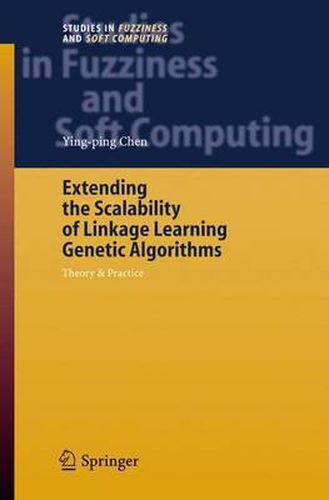Readings Newsletter
Become a Readings Member to make your shopping experience even easier.
Sign in or sign up for free!
You’re not far away from qualifying for FREE standard shipping within Australia
You’ve qualified for FREE standard shipping within Australia
The cart is loading…






This title is printed to order. This book may have been self-published. If so, we cannot guarantee the quality of the content. In the main most books will have gone through the editing process however some may not. We therefore suggest that you be aware of this before ordering this book. If in doubt check either the author or publisher’s details as we are unable to accept any returns unless they are faulty. Please contact us if you have any questions.
Genetic algorithms (GAs) are powerful search techniques based on principles of evolution and widely applied to solve problems in many disciplines. However, most GAs employed in practice nowadays are unable to learn genetic linkage and suffer from the linkage problem. The linkage learning genetic algorithm (LLGA) was proposed to tackle the linkage problem with several specially designed mechanisms. While the LLGA performs much better on badly scaled problems than simple GAs, it does not work well on uniformly scaled problems as other competent GAs. Therefore, we need to understand why it is so and need to know how to design a better LLGA or whether there are certain limits of such a linkage learning process. This book aims to gain better understanding of the LLGA in theory and to improve the LLGA’s performance in practice. It starts with a survey of the existing genetic linkage learning techniques and describes the steps and approaches taken to tackle the research topics, including using promoters, developing the convergence time model, and adopting subchromosomes.
$9.00 standard shipping within Australia
FREE standard shipping within Australia for orders over $100.00
Express & International shipping calculated at checkout
This title is printed to order. This book may have been self-published. If so, we cannot guarantee the quality of the content. In the main most books will have gone through the editing process however some may not. We therefore suggest that you be aware of this before ordering this book. If in doubt check either the author or publisher’s details as we are unable to accept any returns unless they are faulty. Please contact us if you have any questions.
Genetic algorithms (GAs) are powerful search techniques based on principles of evolution and widely applied to solve problems in many disciplines. However, most GAs employed in practice nowadays are unable to learn genetic linkage and suffer from the linkage problem. The linkage learning genetic algorithm (LLGA) was proposed to tackle the linkage problem with several specially designed mechanisms. While the LLGA performs much better on badly scaled problems than simple GAs, it does not work well on uniformly scaled problems as other competent GAs. Therefore, we need to understand why it is so and need to know how to design a better LLGA or whether there are certain limits of such a linkage learning process. This book aims to gain better understanding of the LLGA in theory and to improve the LLGA’s performance in practice. It starts with a survey of the existing genetic linkage learning techniques and describes the steps and approaches taken to tackle the research topics, including using promoters, developing the convergence time model, and adopting subchromosomes.